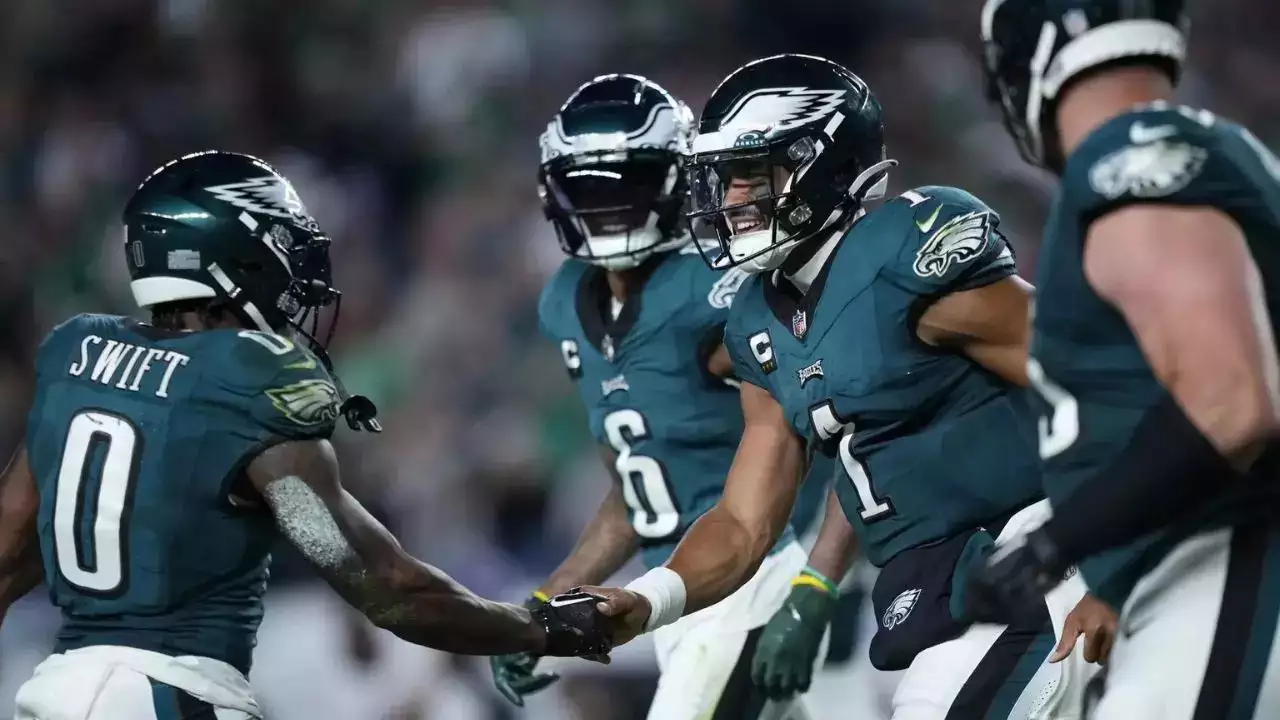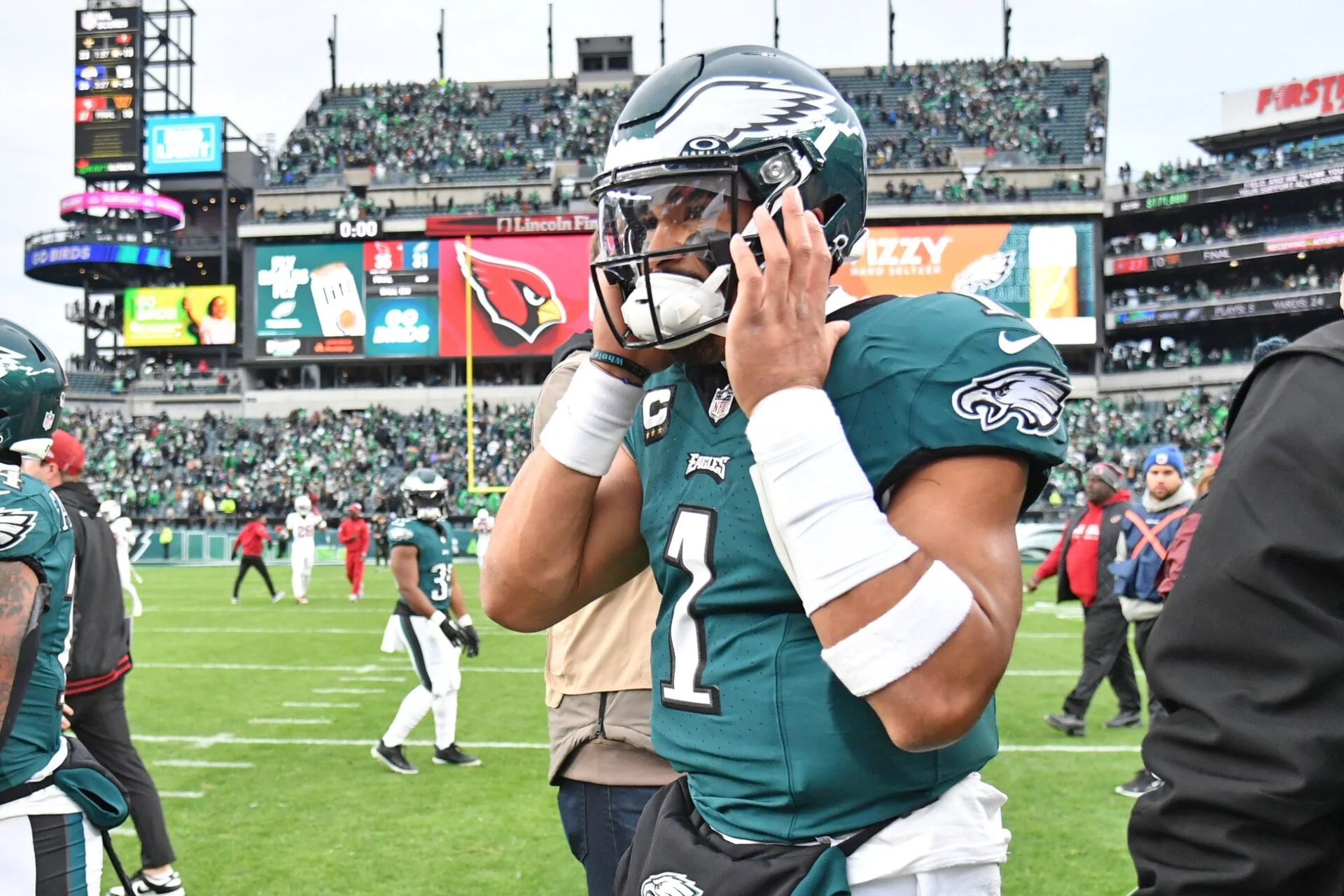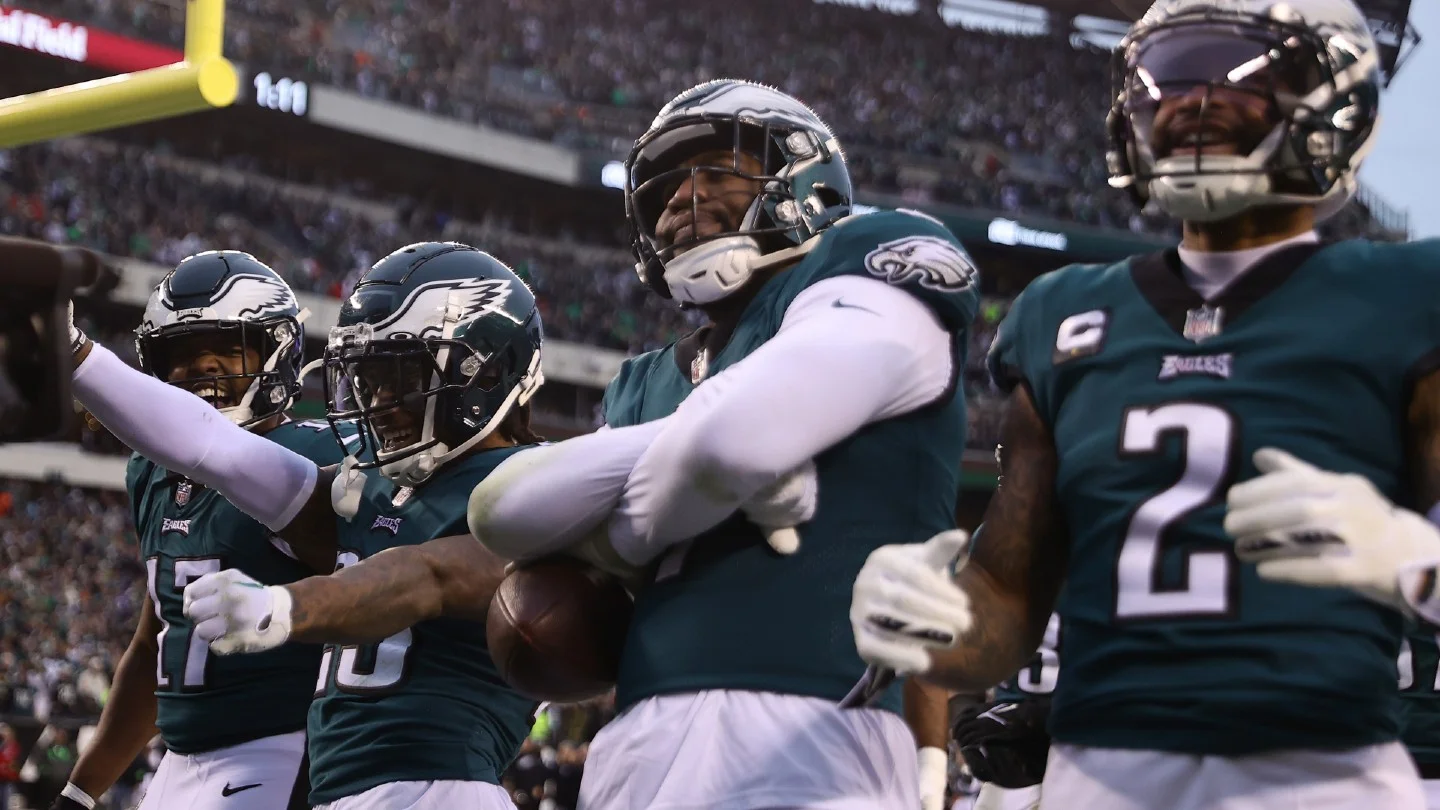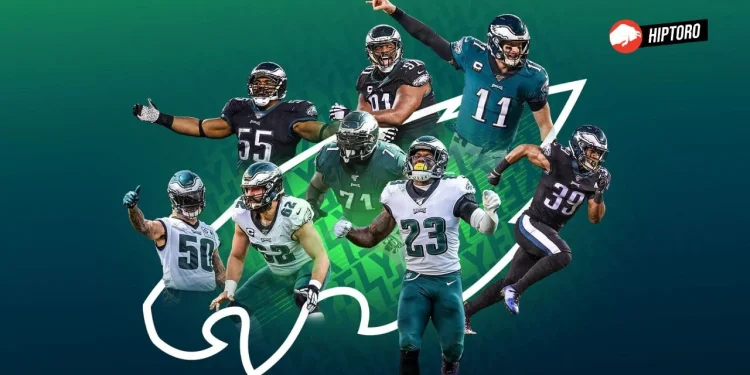In the high-stakes world of NFL finance, Howie Roseman, the Philadelphia Eagles’ general manager, is playing a daring game. After an almost magical 2022 season that teased fans with the prospect of another Lombardi Trophy, the Eagles are positioning themselves aggressively for future glory. Their recent contract maneuvers, however, could leave Roseman in a precarious position.

Philadelphia Eagles’ Record Spending on Offensive Firepower
The Eagles have not been shy about opening their wallet to secure top-tier talent. This offseason, they committed a hefty $75 million over three years to wide receiver DeVonta Smith. This move not only secures a key player before a projected spike in market prices but also places Philadelphia in a unique financial landscape.
Together with A.J. Brown, whose contract totals a staggering $100 million over four years, the Eagles now boast two of the top five highest-paid wide receivers in the NFL, as reported by Spotrac.
This level of investment has led to Philadelphia having one of the most expensive offenses in the league, including top earners across several positions: quarterback, running back, wide receiver, offensive tackle, and even the league’s highest-paid guard.
Despite these blockbuster deals, the Eagles manage to maintain approximately $27.2 million in cap space, a testament to Roseman’s financial acumen.

The Risk of Void Years
A significant portion of Philadelphia’s strategy revolves around the use of void years in contracts. These are essentially placeholders that spread the salary cap hit over future years beyond the player’s active contract. This maneuver is beneficial in the short term but could pose substantial risks down the line.
For instance, A.J. Brown’s technically ten-year contract includes four void years, adding up to a cap hit of $53.5 million. This type of structuring is widespread among Eagles players, moving nearly $400 million into future obligations, according to insights from Sports Illustrated’s Albert Breer.
As of now, the Eagles have 52 players signed through the 2025 season, more than any other NFL team. This allows them to defer some financial burdens but also necessitates precise management and decision-making to prevent future fiscal crises.

Philadelphia Eagles’ Future Challenges and Draft Strategies
Looking ahead, Philadelphia faces a tightening financial situation, with minimal cap space projected for 2025 and beyond. The team will need to make tough decisions about players like Brown, who has a rising cap figure but no guaranteed money after 2024. Such scenarios could force Roseman to choose between extending, restructuring, or releasing key talents.
To mitigate these challenges, Roseman may need to enhance the roster through the NFL Draft, mirroring strategies employed by teams like the San Francisco 49ers, who have also navigated high payroll seasons.
#Eagles LB Jeremiah Trotter Jr could be the biggest steal in Philadelphia Eagles draft history, with a ceiling as high as his, sky’s the limit for the rookie 🦅
2024 #NFL Draft: R5 P155 pic.twitter.com/W62ANAN5uB
— The Swoop Scoops (@TheSwoopScoops) May 7, 2024
A Delicate Balance
Roseman’s strategy of heavy spending coupled with clever financial structuring is a high-risk, high-reward game. While currently providing Jalen Hurts and the team with the weapons they need to compete at the highest level, the long-term sustainability of this approach remains in question.
As the Eagles aim for the championship heights once more, the decisions made in the front office will be just as crucial as those made on the field. Roseman’s future, quite literally, depends on the balance of this fiscal tightrope.










